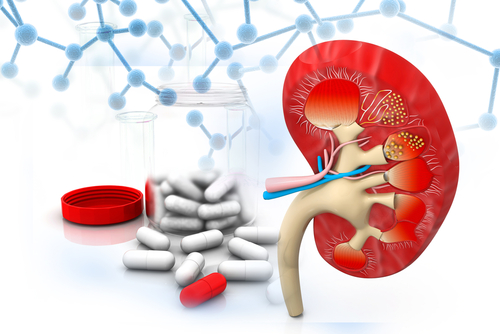FAQs About Kidney Transplants for Patients With aHUS

Atypical hemolytic uremic syndrome (aHUS) is a rare genetic disease associated with symptoms such as hemolytic anemia (loss of red blood cells) and thrombocytopenia (low platelet count). In severe cases, the disease can lead to chronic kidney disease and kidney failure.
A kidney transplant is usually recommended when chronic kidney disease progresses to stage 4 or above.
Here are some answers to a few frequently asked questions about kidney transplants.
Is dialysis needed before a kidney transplant?
Dialysis is usually not needed before a kidney transplant. aHUS patients can recover their kidney function over time if they undergo dialysis regularly. If you have aHUS and your symptoms persist, ask your doctor whether a kidney transplant would be beneficial for you.
Can a kidney transplant cure aHUS?
A kidney transplant cannot cure the underlying cause of aHUS. Continued treatment with Soliris (eculizumab) or Ultomiris (ravulizumab) is needed to prevent damage to the newly transplanted kidney.
What factors determine my eligibility for a kidney transplant?
Before confirming your eligibility for a kidney transplant, you will be examined thoroughly by the transplant team. Generally, you need to have a body mass index of 35 or less and be younger than 75. Factors such as your physical health, emotional well-being, and ability to manage post-transplant care and medications all play a role in determining your eligibility.
How long does it take to find a suitable kidney?
A suitable kidney from a deceased donor could take several years to be available, depending on your position on the transplant waiting list. Therefore, check with family members or friends, who may be suitable donors, if they are willing to donate a kidney as this can significantly reduce the waiting time.
How long will a transplanted kidney last?
If a suitable match is found, a transplanted kidney can last between 10 to 12 years.
What treatments need to be avoided?
If you have been undergoing plasma exchange therapy, inform your transplant team beforehand as excess antibodies in the blood can pose difficulties in finding a matching donor.
Discuss your medical history with your doctor before and after the transplant and confirm the medications to avoid. Certain chemotherapy and immunotherapy medications can trigger aHUS symptoms, and non-steroidal anti-inflammatory drugs that help in pain relief can damage kidney function.
Do I need to make lifestyle changes after the transplant?
An active lifestyle that incorporates healthy food habits and adequate fluid intake but eliminates smoking and alcohol is recommended to protect your new kidneys. Stay away from known environmental aHUS triggers, such as dust, pollen, or any other allergy-causing agents.
Last updated: Feb. 11, 2020
***
aHUS News is strictly a news and information website about the disease. It does not provide medical advice, diagnosis, or treatment. This content is not intended to be a substitute for professional medical advice, diagnosis, or treatment. Always seek the advice of your physician or other qualified health provider with any questions you may have regarding a medical condition. Never disregard professional medical advice or delay in seeking it because of something you have read on this website.






